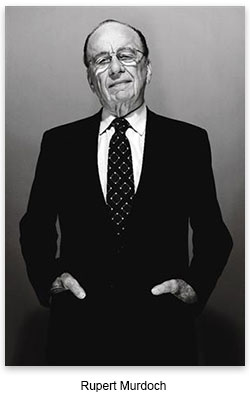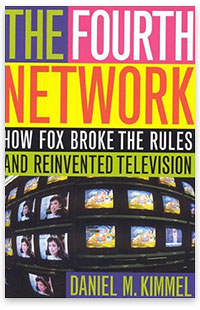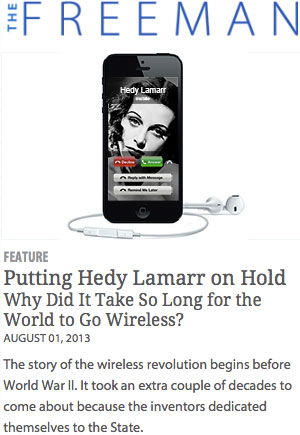The Right to Say “I Do” versus the Right to Say “I Don’t”
Legal System The New Mexico state government has become significantly more gay friendly in the last week or two.
The New Mexico state government has become significantly more gay friendly in the last week or two.
Sadly, one result is that individual freedom in the state is on the wane.
On Monday, a New Mexico judge ruled that the state’s marriage law "doesn’t specifically prohibit gay marriage," and the next day court clerks began issuing same-sex marriage licenses.
I look at the photographs of gay and lesbian couples tying the knot yesterday in Albuquerque, and I feel moved by them. Knowing how they’ve struggled to achieve the moment captured in those pictures, I feel much happier for them than I would for most strangers. And I think of the same-sex couples I know, none of them married by any legal definition, and I wonder if the piece of paper would matter to them.
This is how the state tricks libertarians into supporting the growth of government power.
I’m not suggesting that anyone in the government is actually concerned about the beliefs and political stances of self-described libertarians — we’re far too small a group for the Powers That Be to care what we think — but anyone who believes that individuals have any inalienable rights is, to at least that limited degree, libertarian in their thinking. And it is that libertarian instinct that the political class appeals to for increases in legislation and the growth of the state.
The marriage-law ruling comes one week after another so-called gay-rights case:
"Refusal to photograph New Mexico same-sex couple ruled illegal"
I can’t recall why Robert Anton Wilson stopped supporting the ACLU and started giving his money instead to the Fully Informed Jury Association (FIJA). But if you ever needed evidence that the ACLU is an anti-libertarian organization (whose name should really have the word "liberty" in scare quotes), then this case should be conclusive.
Joshua Block, an attorney with the American Civil Liberties Union, which represented the couple, said the ruling rejected a "frighteningly far-reaching" argument for allowing private companies to discriminate against gays and lesbians.
"The Constitution guarantees religious freedom in this country, but we are not entitled to use our beliefs as an excuse to discriminate against other people," said Louise Melling, also of the ACLU.
As one comrade said recently, "Thank God for the ACLU. Who else would stand up for a gay couple’s right to force a company to provide them services unwillingly?"
The photography case isn’t about gay marriage, but it nevertheless highlights why many libertarians are reluctant to support gay-marriage legislation.
Should gays be allowed to marry? At first glance, that seems like a no-brainer to advocates of individual rights. To a supporter of liberty, the question becomes, "Who has a right to stop them?" In our view, anyone (well, let’s say any mentally competent adult) has a fundamental right to make contracts with anyone else (again, consenting adults, to keep the argument on track). And while it may offend romantic sensibilities — or even personal experience — to think of marriage primarily as a contract between individuals, contract is nevertheless the proper public component of such a private union. (By this same reasoning, we support the rights of polygamists, assuming consenting adults, etc.)
But the state turns the gay-marriage issue into a sort of trick question. Because the current legal definition of a marriage is both more and much less than a mutually beneficial arrangement between the spouses: it’s a set of coercive obligations imposed on third parties.
Again, the photography case was not about gay marriage but about antidiscrimination laws, but the two are linked, because any business that, to use the ACLU’s terminology, "offers services to the public," is already burdened with legislation dictating what they can and cannot do, whom they may and may not employ or serve, and even in jurisdictions where sexual orientation is not already included in antidiscrimination laws, those laws could automatically grow to include gays and lesbians when state-sanctioned marriage (under whatever name) is applied to same-sex couples.
So the gay-marriage issue is contentious even within the libertarian movement because it practically requires us to conflate two very distinct questions:
- Should any adult be denied the right to "marry" any other consenting adult?
- Should other individuals be forced to recognize such unions?
The first question is a no-brainer, and it’s the one most people have in mind when they say they support gay marriage.
The second question is equally straightforward for a libertarian, and yet, in the current context, it conflicts with the answer most of us want to give to question #1.
Antidiscrimination laws are a violation of freedom of association.
Telling me whom I can and cannot hire or whom I must or must not serve professionally is like telling me whom I may or must befriend, date, or marry. Even the most ardent opponent of discrimination would probably scruple to force a black girl to date a white hillbilly, or a Muslim man to marry a Jewish woman. Statists believe it’s their business whom I hire or fire and whose business I must accept. But even they stop short of telling me whom I must invite into my home or into my family.
Even if we want to promote open-mindedness and persuade each other to see past the categories of religion, race, sex, and orientation, very few would be comfortable forcing personal associations on people through coercive legislation. Yet many on the Left advocate tirelessly for such coercion against businesses, without seeing it as the same issue — even when the business is just one individual trying to make a living.
I don’t want the state to discriminate against gays or any other group. But the recent developments in New Mexico will not reduce the problem. The larger and more intrusive the state becomes, the more it has to side with one group against another, feeding on conflict as it sows the seeds for ever more.
Anyone who is serious about liberating gay and lesbian couples should demand that the state get out of the marriage business altogether — and let people associate freely, not under duress, whether or not their choices strike us as enlightened.
The Right to Say “I Do” versus the Right to Say “I Don’t” Read Post »

 Rupert Murdoch
Rupert Murdoch


